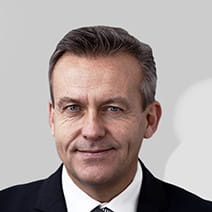In the next of our Stocktake series we look at the Sustainable Investment theme ‘A circular materials economy’ and examine how resale company the Winmark Corporation is exemplifying this.
This is the third article in the series, you can read the other articles here:
Vestas: a renewable investment opportunity
We live in a throwaway world of fast fashion with an estimated 1.92 million tonnes of textile waste generated every year, despite growing awareness of the need to live more sustainably. Underlining the scale of waste, figures from charity Earth.Org suggest that of the 100 billion or so garments produced each year, a staggering 92 million tonnes end up in landfill.
Historically, our economic model as a society has been predominantly linear; we extract resources, use them to make products, which are used and thrown away to landfill. The global clothing industry in particular has multiple negative environmental impacts. These include:
- Greenhouse gas emissions – the fashion industry generates more greenhouse gas emissions than international shipping and aviation combined, from the production of fibre and synthetic materials to chemicals and dyes used, and the energy used in production processes.
- Biodiversity impacts – intensive farming from growing natural fibres such as cotton and bamboo using fertilisers and pesticides can degrade soil quality, destroy natural habitat and reduce biodiversity.
- Water consumption – the clothing industry uses vast quantities of water. According to the UN Environment Programme, around 20% of global wastewater comes from textile dyeing and it takes around 2,700 litres of water to make an average T-shirt (one person’s drinking water for 2.5 years).
- Microplastics – these come from washing synthetic clothes and account for 35% of primary microplastics released into the environment. Microplastic ingestion by aquatic organisms can cause physical and chemical impacts that can result in starvation and endocrine disruption and can make their way up the food chain into animals and humans.
Meanwhile fashion brands’ ability to drive costs down often results in social issues such as poor working conditions in garment factories. Many clothes end up as waste due to the clothing industry’s systemic problem of over-producing that drives consumers to over-buy and under-use.
Fundamental changes are needed to ensure that we produce and consume goods and services in a more sustainable way for the planet and part of the solution to this global challenge is a circular economy – in simple terms, consumers need to consume less, consume smartly and apply a circular approach.
Main drivers of the circular materials theme
The good news is that consumer attitudes towards so-called circular clothing models – where clothes are recycled and used to make new garments – are changing. Second-hand clothing has also shaken off its poor reputation, helped by the trend for ‘vintage’ clothing but also as people become more aware of the negative impacts of clothing and their purchasing decisions.
Meanwhile more businesses are evolving their approach with circularity in mind (greenwashing aside), while regulation to tackle textile waste through producer responsibility may be on the horizon.
Fast fashion still dominates
However, not all companies are likely to want to adopt a circular model. In particular, fast fashion retailers such as Boohoo, Asos and Primark, who are tied into current linear practices, seem unlikely to risk their existing profitable model.
According to the Ellen MacArthur Foundation, in the last 20 years, global clothing production has more than doubled, the average consumer buys 60% more, and each garment is kept for half as long. Shockingly, around half of items in a customer’s wardrobe are unworn (c. $30 billion of unworn items in UK wardrobes).
There is no doubt that the fashion industry is responsible for creating this consumer demand; selling clothes is profitable and instead of manufacturing stock at rates that consumers need, it focuses on making ever new items, outdating our wardrobes, keeping people shopping, using advertising to promote the latest trends. Clothing brands just don’t want us to buy less, and this drives a race to the bottom on price and quality.
Circular opportunities
The need for change is clear and we believe the direction of travel will continue to get stronger. There are clear business – and investment – opportunities for extending the life of clothes. The team has been assessing companies and business models within its sustainable investment theme of ‘Delivering a circular materials economy’, which include companies that promote considerate purchasing/slow fashion, clothing resale, subscription, renting, repairing, repurposing and recycling clothes.
Winmark Corporation – ‘The Resale Company’
One company that has strong exposure to our sustainable investment theme of Delivering a circular materials economy is the US-listed $1.5 billion market cap company Winmark Corporation. Held in our Sustainable Future US Growth Fund, Winmark franchises and operates around 1,300 retail stores in North America with a focus on ‘gently used’ clothes and other goods. Winmark’s retail brands include Plato’s Closet, which sells second-hand clothes to young adults and teens, Style Encore for women’s clothes and accessories and Once Upon a Child, which is focused on children’s clothing and other products. The company has also set up online marketplaces for some of its brands.
Not only do Winmark franchises extend the life of second-hand clothing and other products that are no longer used, resulting in an environmental benefit versus customers buying new – buying an item second-hand extends its life, reducing carbon footprint of the item by 25% (ThredUp 2023 Resale Report) – there is a social benefit because it allows customers to sell goods that they no longer use in return for either cash or store credit, as well as enabling them to buy quality used items at a substantial discount to new.
As a result, Winmark has been rated A overall by Liontrust, despite some sales of new merchandise (mainly linked to its sporting goods franchise).
We are engaging with the company to improve the level of disclosure on ESG issues, where it is lacking. While the company has only 80 employees, it is crucial that it attracts and retains another form of key personnel - its franchisees. By supporting and enabling them, Winmark creates long-term partners that together generate long-term sustainable growth. Franchise contracts are 10 years long, and after this period 99% of franchisees renew for another 10 years. Revenue is stable from ongoing weekly royalties collected from the franchises. Winmark’s fundamentals are strong from the franchise model, where operating margins of 66% enable high returns on capital. This allows a considerable amount of capital to be returned to shareholders, after management’s reinvestment to support growth.
We expect Winmark to grow faster than the underlying market in the medium term. Upon our investment in Winmark in the SF US Growth Fund, the company was attractively valued on a 5-year investment horizon. However, given the company’s share price gains in recent months, the valuation of Winmark is currently under review.
Winmark’s business model is therefore fundamentally driving a circular materials economy through engaging in buying and selling gently used goods. The company is an excellent example of what our process looks for in the SF funds – companies enabling sustainability while exhibiting strong long- term growth potential.
KEY RISKS
Past performance is not a guide to future performance. The value of an investment and the income generated from it can fall as well as rise and is not guaranteed. You may get back less than you originally invested.
The issue of units/shares in Liontrust Funds may be subject to an initial charge, which will have an impact on the realisable value of the investment, particularly in the short term. Investments should always be considered as long term.
The Funds managed by the Sustainable Future Team:
Are expected to conform to our social and environmental criteria. May hold overseas investments that may carry a higher currency risk. They are valued by reference to their local currency which may move up or down when compared to the currency of a Fund. May hold Bonds. Bonds are affected by changes in interest rates and their value and the income they generate can rise or fall as a result; The creditworthiness of a bond issuer may also affect that bond's value. Bonds that produce a higher level of income usually also carry greater risk as such bond issuers may have difficulty in paying their debts. The value of a bond would be significantly affected if the issuer either refused to pay or was unable to pay. May encounter liquidity constraints from time to time. The spread between the price you buy and sell shares will reflect the less liquid nature of the underlying holdings. Outside of normal conditions, may hold higher levels of cash which may be deposited with several credit counterparties (e.g. international banks). A credit risk arises should one or more of these counterparties be unable to return the deposited cash. May be exposed to Counterparty Risk: any derivative contract, including FX hedging, may be at risk if the counterparty fails. May invest in companies listed on the Alternative Investment Market (AIM) which is primarily for emerging or smaller companies. The rules are less demanding than those of the official List of the London Stock Exchange and therefore companies listed on AIM may carry a greater risk than a company with a full listing. May invest in smaller companies and may invest a small proportion (less than 10%) of the Fund in unlisted securities. There may be liquidity constraints in these securities from time to time, i.e. in certain circumstances, the fund may not be able to sell a position for full value or at all in the short term. This may affect performance and could cause the fund to defer or suspend redemptions of its shares.
The risks detailed above are reflective of the full range of Funds managed by the Sustainable Future Team and not all of the risks listed are applicable to each individual Fund. For the risks associated with an individual Fund, please refer to its Key Investor Information Document (KIID)/PRIIP KID.
DISCLAIMER
This is a marketing communication. Before making an investment, you should read the relevant Prospectus and the Key Investor Information Document (KIID), which provide full product details including investment charges and risks. These documents can be obtained, free of charge, from www.liontrust.co.uk or direct from Liontrust. Always research your own investments. If you are not a professional investor please consult a regulated financial adviser regarding the suitability of such an investment for you and your personal circumstances.
This should not be construed as advice for investment in any product or security mentioned, an offer to buy or sell units/shares of Funds mentioned, or a solicitation to purchase securities in any company or investment product. Examples of stocks are provided for general information only to demonstrate our investment philosophy. The investment being promoted is for units in a fund, not directly in the underlying assets. It contains information and analysis that is believed to be accurate at the time of publication, but is subject to change without notice. Whilst care has been taken in compiling the content of this document, no representation or warranty, express or implied, is made by Liontrust as to its accuracy or completeness, including for external sources (which may have been used) which have not been verified.

















